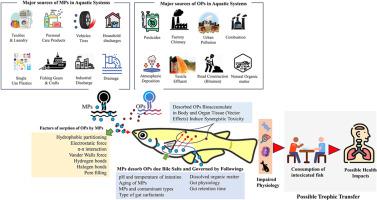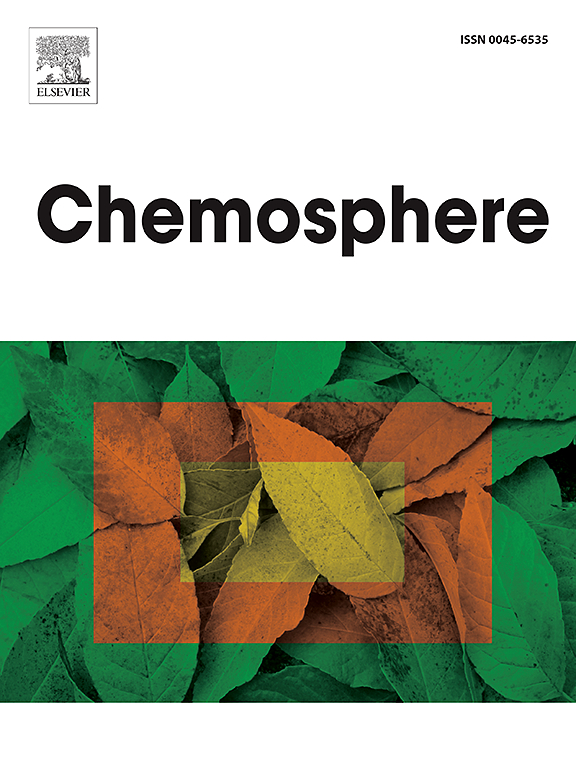微塑料对有机污染物的载体效应:吸附-解吸和生物积累动力学
IF 8.1
2区 环境科学与生态学
Q1 ENVIRONMENTAL SCIENCES
引用次数: 0
摘要
微塑料(MPs)对生物生理具有固有的有害影响,此外,它们可以吸收水生生物肠道中来自水、运输和浸出的疏水性有机污染物(OPs),从而增强生物积累(媒介效应)。因此,MPs介导的增强的生物积累可引起摄取物的联合或协同毒性。一些实验室和现场研究已经证实了MPs吸附/吸收共污染物的能力,并提出了影响吸附动力学的化学和环境因素的数量。此外,研究还表明,这些被吸收的化学物质主要受胆汁盐的作用,并受一系列物理化学和生物因素的支配,在肠道中被浸出,并导致生物蓄积增强。然而,一些研究降低了MPs的载体可能性,强调多模式同化而不是单一摄取途径。尽管进行了深思熟虑的调查,但仍然缺乏对生物区系中吸附-解吸过程及其随后的病媒或无病媒效应的现有报告的汇编和综合。因此,本文对现有的数据进行了综合和理解,以期对污染物的结合、迁移、淋滤和随之增加的生物积累提供总结的见解。本综述还比较了媒介与无媒介报道的争论,并概述了明确的共识。本文章由计算机程序翻译,如有差异,请以英文原文为准。

Vector effects of microplastics on organic pollutants: sorption-desorption and bioaccumulation kinetics
Microplastics (MPs) has their inherent detrimental effects on organism's physiology, additionally, they can sorb hydrophobic organic pollutants (OPs) from water, transport, and leach in the gut of aquatic biota, resulting enhanced bioaccumulation (vector effects). Thus, MPs mediated enhanced bioaccumulation can cause combined or synergistic toxicity in ingesters. Several laboratory and field studies have confirmed the ability of MPs to adsorb/absorb co-contaminants and suggested numbers of chemical and environmental factors affecting sorption kinetics. Besides, studies have also shown that these sorbed chemical can be leached in intestine primarily due to bile salts and governed by range of physico-chemical and biological factors, and resulted enhanced bioacumulation. However, some studies have declined the vector possibilities of MPs and emphasized multimode assimilation rather than single uptake pathway from MPs. Despite deliberate investigations, compilation and synthesis of existing reports on sorption-desorption process and subsequent vector or no-vector effects in biota are still lacking. Therefore, this review comprehends and synthesize existing data to provide summarized insights on pollutant binding, transport, leaching and consequent increased bioaccumulation. This review also compared the debate of vector vs no-vector reports and outlined a clear consensus.
求助全文
通过发布文献求助,成功后即可免费获取论文全文。
去求助
来源期刊

Chemosphere
环境科学-环境科学
CiteScore
15.80
自引率
8.00%
发文量
4975
审稿时长
3.4 months
期刊介绍:
Chemosphere, being an international multidisciplinary journal, is dedicated to publishing original communications and review articles on chemicals in the environment. The scope covers a wide range of topics, including the identification, quantification, behavior, fate, toxicology, treatment, and remediation of chemicals in the bio-, hydro-, litho-, and atmosphere, ensuring the broad dissemination of research in this field.
 求助内容:
求助内容: 应助结果提醒方式:
应助结果提醒方式:


